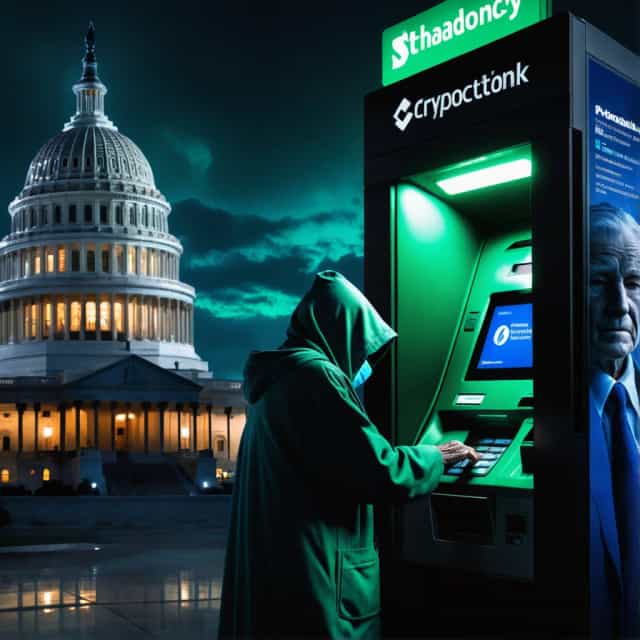
Image source: Block Media
KOSPI Falls Amid Slowing Foreign Buying, Fed Comments, and Profit-Taking
The South Korean KOSPI index reversed its upward trajectory, closing in negative territory as foreign net buying slowed and caution gripped investors following hawkish remarks by Federal Reserve Chair Jerome Powell. Additionally, profit-taking in key semiconductor stocks, which had recently been pivotal in driving the index to record highs, weighed on the market.
According to the Korea Exchange, the KOSPI ended October 24 at 3,472.14, down 14.05 points (0.40%) from the prior day's close of 3,486.19. The index began the session with slight optimism, opening 5.84 points higher at 3,492.03 (up 0.17%), before retreating later in the day.
Powell’s Comments Heighten Market Uncertainty
Federal Reserve Chair Jerome Powell's speech at the Rhode Island Chamber of Commerce injected fresh unease into the markets. Powell noted that "in the short term, inflation risks remain tilted to the upside, while employment risks are skewed to the downside." He further underscored the ongoing uncertainties surrounding both inflation and the labor market, signaling caution at a time when markets are anticipating aggressive monetary easing measures.
U.S. equity markets reflected Powell's wary tone, closing lower, which, in turn, dampened South Korean investors' risk appetite and added to the bearish sentiment in local markets.
Foreign Selling and Profit-Taking Take Center Stage
On the KOSPI, foreign and retail investors took the lead in selling, offloading 2.683 trillion won and 46 billion won worth of shares, respectively. Meanwhile, institutional investors emerged as net buyers, scooping up 2.375 trillion won in equities.
Large-cap stocks displayed mixed performances. Semiconductor giant Samsung Electronics posted a modest gain of 0.83%, while pharmaceutical stalwart Samsung Biologics edged up 0.97%. Leading aerospace player Hanwha Aerospace experienced a strong rally of 5.38%. On the flip side, LG Energy Solution and Hyundai Motor suffered declines of 2.52% and 0.68%, respectively.
Market analysts are attributing the KOSPI’s inability to sustain its rally to the cessation of foreign net buying, a factor that had previously fueled the index's momentum. “Foreign investors’ consistent net-buying, which was a driving force behind the KOSPI’s recent highs, has come to an end,” remarked Lee Jae-won, a researcher at Shinhan Investment. “With the index entering overbought territory, we are witnessing a pattern of new highs followed by profit-taking.”
Lee also noted that the extended holiday season starting next week is likely contributing to reduced enthusiasm in the market. However, he emphasized that critical forthcoming events, such as the release of inflation data this Friday and third-quarter corporate earnings reports, are expected to play pivotal roles in determining the market's next direction.
KOSDAQ Follows Suit, Dragged Down by Foreign Selling
The KOSDAQ index mirrored the KOSPI's downturn, falling 11.27 points (1.29%) to close at 860.94, compared to its previous session finish of 872.21. The tech-heavy index started the day slightly lower, opening 1.67 points down at 870.54 (a 0.19% dip), before extending losses.
Foreign investors were the dominant sellers in the KOSDAQ as well, offloading a net 3.548 trillion won in shares. Meanwhile, retail and institutional investors served as stabilizing forces, buying a net 2.869 trillion won and 792 billion won, respectively.
The performance of KOSDAQ large-cap stocks was broadly negative. Biopharmaceutical firm HLB managed to buck the trend with a modest 0.77% gain, but most other major stocks faltered. Notable decliners included Samchundang Pharm (-7.94%), Peptron (-5.84%), and Alteogen (-3.63%).
Korean Won Weakens Against U.S. Dollar
The foreign exchange market in Seoul saw the Korean won weaken against the U.S. dollar. The won-dollar exchange rate rose 4.9 won, closing at 1,397.5 compared to the prior session’s finish at 1,392.6. The weaker won reflects external pressures arising from Powell’s guarded remarks and broader concerns over the global economic outlook.
In summary, the South Korean stock market faced a challenging trading session, marred by a combination of cautious investor sentiment, foreign selling, and profit-taking. Jerome Powell’s comments on inflation and labor market risks further complicated the outlook, dampening risk appetite among investors. As the market awaits key data on inflation and corporate earnings, investor focus will likely remain fixed on these upcoming catalysts for clearer direction.










